- Two Thanksgiving Thoughts for the ACAPosted 10 years ago
- Shop til you Drop at the Healthcare Marketplace Part 2: Frustration!Posted 10 years ago
- An Early Casualty in the Affordable Care FightPosted 10 years ago
- Some Good News for a ChangePosted 10 years ago
“Life of Pi” directed by Ang Lee
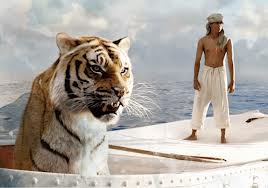
 Dan Walker on Film
Dan Walker on Film
Life of Pi
Director: Ang Lee (Sense and Sensibility, The Ice Storm, Crouching Tiger, Hidden Dragon, Best Director Oscar for Brokeback Mountain)
Writer:
David Magree (screenplay)
Yann Martel (novel)
Cast:
Suraj Sharma (not a single acting credit prior to this movie)
Irrfan Khan (A Mighty Heart, The Darjeeling Limited, Slumdog Millionaire)
Rafe Spall (Shaun of the Dead, Anonymous, Prometheus)
Running Time: 130 Minutes
 I’ve only read three books before they became films: Crichton’s Jurassic Park, Grisham’s The Firm and Martel’s Life of Pi. I was given Life of Pi by someone who said it would be a good way for me to get back to reading novels. It sat on my shelf for two years before I read it a year ago, in a 24-hour period. After reading the final sentence in the book:
I’ve only read three books before they became films: Crichton’s Jurassic Park, Grisham’s The Firm and Martel’s Life of Pi. I was given Life of Pi by someone who said it would be a good way for me to get back to reading novels. It sat on my shelf for two years before I read it a year ago, in a 24-hour period. After reading the final sentence in the book:
– It immediately ranked near the top of my favorite entertainment experiences, in any medium*
– I was envious I didn’t write it (even though I’m not a writer)
– I didn’t think it was filmable, certain it would float in Hollywood purgatory for years before it was made into a film, IF it was ever made into a film
– I couldn’t wait to find out who would try to direct the movie
Pi (4 different actors with Suraj Sharma as the main Pi and Irrfan Khan as an adult) is the son of a zookeeper in India. When Pi is in his mid-teens, his father decides to sell the zoo and move to Canada to begin a new life with and for his family. They travel to Canada by ship and share the ride with the animals they plan to sell once they reach shore. The ship capsizes and it’s at this point the story really begins.
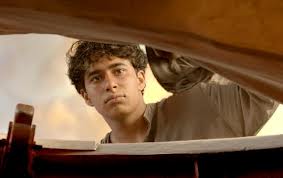 To set up the story, we are shown how strong Pi’s character is and how smart he is when teased about his full first name (think of a bodily function beginning with those two letters) and how he gets the attention of the girl he’s fallen for. We also see what an individual thinker he is by his focused and unorthodox quest for spiritual/religious answers/guidance, impressive for someone at such a young age. (Normally, someone is beaten down by life before they start such an intense search for spirituality and life’s answers.)
To set up the story, we are shown how strong Pi’s character is and how smart he is when teased about his full first name (think of a bodily function beginning with those two letters) and how he gets the attention of the girl he’s fallen for. We also see what an individual thinker he is by his focused and unorthodox quest for spiritual/religious answers/guidance, impressive for someone at such a young age. (Normally, someone is beaten down by life before they start such an intense search for spirituality and life’s answers.)
Along with the accident at sea, another parallel Life of Pi has with “Cast Away” is the main character spending the bulk of the movie with a non-human companion, in this case, a life-threatening antagonist.
I saw the movie at 10:15 Thanksgiving morning. I didn’t watch it the day before — its opening — because I was traveling to southeastern Pennsylvania, very over-the-river-and-through-the-woods country. I’d never watched a movie in a theatre before Thanksgiving dinner. Because I loved the book so much, the experience had tremendous energy even before the opening titles and it never let up until the film’s epilogue. Between the time I finished the book and saw the movie, I imagined which scenes would be filmed and forgot the scenes that weren’t. The story was told very much the way I imagined, minus the “Saving Private Ryan” bookends, which I guess were necessary for narrative purposes and a digestible, for-the-masses ending.
I’ve always hated being told “you had to have read the book” to understand or fully appreciate a movie, so I’m reluctant to say anyone could fully appreciate the story without reading the book. Yet the writing and direction – and every other part of the moviemaking – made the movie completely understandable to the non-book reader, a huge accomplishment in itself. Ang Lee is clearly undaunted by his incredibly diverse projects but rather excited at the challenge, pretty much succeeding every time (I won’t mention “Hulk”. I won’t mention “Hulk”. I won’t mention “Hulk”). I don’t think he’s ever succeeded so completely as he does with the “Life of Pi”.
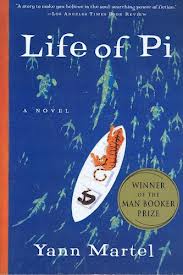 The movie relies on one actor to carry the story, and Sharma is thoroughly convincing as the lost-at-sea Pi. He’s actually better and more interesting than the Pi I imagined while reading the book. Khan, who plays the adult/narrator Pi, was memorable as the police chief in “Slumdog Millionaire” and stole “A Mighty Heart” from under Angelina Jolie’s French accent as, again, a police chief. As narrator, he really doesn’t get to do much other than give the movie a prologue and epilogue. He reminds me a lot of Chiwetel Ejiofor (look him up and you’ll see), himself an interesting actor and strong screen presence — a compliment to both actors. The rest of the cast does well in their roles. I’m still trying to figure out what happened to Gérard Depardieu, who plays the ship’s brutish cook. He didn’t look anything like that the last time I saw him in a movie. Been a while.
The movie relies on one actor to carry the story, and Sharma is thoroughly convincing as the lost-at-sea Pi. He’s actually better and more interesting than the Pi I imagined while reading the book. Khan, who plays the adult/narrator Pi, was memorable as the police chief in “Slumdog Millionaire” and stole “A Mighty Heart” from under Angelina Jolie’s French accent as, again, a police chief. As narrator, he really doesn’t get to do much other than give the movie a prologue and epilogue. He reminds me a lot of Chiwetel Ejiofor (look him up and you’ll see), himself an interesting actor and strong screen presence — a compliment to both actors. The rest of the cast does well in their roles. I’m still trying to figure out what happened to Gérard Depardieu, who plays the ship’s brutish cook. He didn’t look anything like that the last time I saw him in a movie. Been a while.
The other character who must be convincing is the tiger, Richard Parker (he doesn’t talk, it’s just his name). At no point does Richard Parker – calling him by only his first or last name doesn’t work – seem less than real**, and the demands here are many and diverse. Does a Supporting Actor nominee need to be human or even breathe? Can the Supporting Actor nomination go to the effects guys in a case like this? The other effects in the movie are similarly seamless.
The combination of loving the book, seeing it Thanksgiving morning, going in completely open-minded and wide-eyed then being startled by its quality was an overwhelming moviegoing experience for me. (With how much I liked “Argo” and “Lincoln”, I’m actually nervous about seeing the next big movie.)
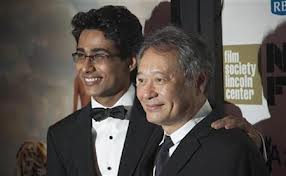 Considering how bombarded we are from every direction with news, devices and events that desensitize us, I find great satisfaction knowing a movie can still elicit that type of reaction from me.
Considering how bombarded we are from every direction with news, devices and events that desensitize us, I find great satisfaction knowing a movie can still elicit that type of reaction from me.
Dan
*******************************************************************************Here’s the lights-up-leaving-the-theater part:
* Along with the books The Good Earth and The Grapes of Wrath – both of which I read when I was ten — Stevie Wonder albums made between 1971 and 1979, every Prince album made before 1995***, several Michel Gondry music videos (that guy is a wizard), The Sopranos, Seinfeld, the first ten years of The Simpsons, the book and movie “Jurassic Park” and a bunch of movies. Before reading Life of Pi, I never thought about ranking my entertainment experiences. I dislike ranking my favorite movies (the answer is “Star Wars”).
** I can’t believe how realistic computer-generated-image effects are now, which is something I tell myself cgi-movie after cgi-movie even though, after seeing “Jurassic Park” (15 times in the theatre), it was clear all bets were off going forward. And that was 19 years ago. I still get that weird feeling thinking about the scene where that small dinosaur made one last act of defiance against the T-Rex before its life ended. There’s actually a quick moment in “Life of Pi” that’s similar, involving sharks attacking an animal you wouldn’t imagine being attacked by anything. I just got that weird feeling again. Wonder what that’s called?
*** It’s not that Prince’s music got worse, it’s just that he put out too much of it and there’s only so much I can digest from one artist. In 1996 and 1998, the guy successively put out a 3-disc album then a 5-disc album. That’s the same as putting out 8 albums in two years. That’s like challenging your fans to throw up their hands crying, “I give up! You win!” (It’s besides the point that every song on both those collections was good.)
The Post’s fascinating Interview with Dan follows shortly.


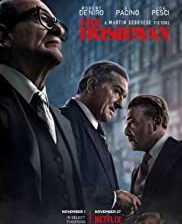

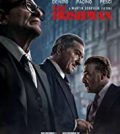
Now I am going to have to see this movie and read the book. Thanks for inspiring me to do both.